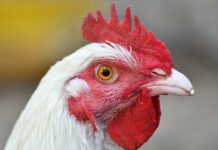In the Star Trek world, there is an evil entity known as The Borg whose ultimate goal is total domination, to assimilate all life and all raw material into its collective. “Resistance is futile,” they tell their targets. The millions of Borgs, known as drones, have but one mind, no individual personalities or thoughts.
But Borgs don’t consider themselves evil; they believe that by assimilating other species into the collective, they help bring them closer to a state of perfection.
I only know about the Borgs because a smart farmer friend uses them to describe much of what is going on in agriculture today. And he’s so on target, it’s scary.
We’re witnessing more mergers and alliances and links and acquisitions and ever-increasing concentration – concentration of seed and chemicals, livestock slaughter, grain handling and shipping, farm equipment manufacturers and food retailing. If we’re not going through ‘assimilation’, I don’t know what assimilation is.
Neil Harl, a professor of both agriculture and economics at Iowa State University and member of the Iowa bar, detailed his assimilation concerns Feb. 20 in a presentation in Arkansas.
“The evidence is overwhelming that the agricultural sector is undergoing the greatest structural transformation in the history of the sector,” Harl said. “Without much doubt, low commodity prices are contributing to the structural transformation of the sector. A low risk, low return choice looks attractive if the alternative is bankruptcy.”
The critical question, Harl adds, is this: “Is it important to farmers – and to society – whether agriculture is populated by independent entrepreneurs or serfs? The structural change now occurring will determine which direction agriculture takes.
“A producer without meaningful competitive options is a relatively powerless pawn in the production process,” Harl says.
‘Take what you’re offered’ is becoming the limited marketing option available to farmers. And as contract production proliferates more sectors, is there any doubt that the outcome will tilt in favor of the input supplier and the processor? Producers are getting squeezed.
“The party with the weaker market power tends to be the loser,” Harl says. And unless producers act collectively, producers tend to be the weaker party.
Ah, but producers rarely work collectively because they fiercely protect and value their independence. Collective bargaining is for labor unions, not agriculture, right?
Harl doesn’t mince words. “The key question is whether producers will be willing to sacrifice independence of action in order to bargain collectively for access to inputs and for greater market power in marketing their products.
“…The time may be near when that will be the only practical alternative to vulnerability and serfdom,” he adds.
Many solutions to ag problems seem to lie outside our control and require public interest and political will of others. Bargaining collectively for inputs or for the sale of your commodities lies in producers’ hands – but it also takes producer interest and determination. Time will tell if we have either.
Of course, the alternative is complete assimilation, which is what the Borgs want.
“Lower your shields and surrender your vessel.
We will add your biological and technological distinctiveness to our own.
Your culture will adapt to service us.”









